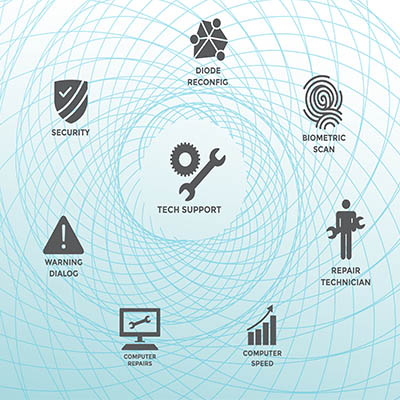We focus a lot of time and effort on securing our clients with our cutting-edge tools and industry best practices. Our adversaries, the hackers, on the other hand, have come to understand that the way they will be successful is to get their contrived messages in front of the least knowledgeable people in your organization. Let’s take a look at how hackers choose their targets to get a better understanding of what their strategy is.
What Motivates Hackers?
The motive for any fraud is money; and that is likely what any hacker is looking for: a way to get more money. Whether they do this directly or indirectly, the motivation is the same for 85 percent of scammers out there. Now, most attacks out there don’t give these hackers access to money directly, it typically just gets them into a situation where they can complete their fraud.
They can sometimes get money from a direct hack, but more often than not they will either need to exfiltrate data off of a network and then sell it to whoever is in the market for it, or they will need to deploy malware (such as ransomware) that will put them in the position to extort money from the victim. Either way, it’s more than just gaining access to a user’s bank account.
What Do Hackers Look for in a Target?
The truth is that most phishing attacks aren’t sent with a target in mind. They just mail them out and see what happens. That’s not to say there aren’t scammers out there that target specific people, but for the most part, if you receive a phishing email (and you will), it was the result of the hacker getting a massive list of email addresses and sending the message in bulk. Hackers, however, tend to do research to help them better understand who will be easier to hack. This research entails:
- Searching the Dark Web – Many scammers look on the Dark Web to find their targets. In fact, over half of the sites that make up the Dark Web support some type of illegal activity. This is where they can gain access to accounts and data to help them along on their hacking efforts, and where they return to in order to sell any data and other information they steal.
- Businesses with Available Capital – Much of a hacker’s effort is putting themselves in solid positions to acquire as much money or data as possible. In order to do that, they have to target organizations that have capital to spend and data to steal.
- New Businesses and Smaller Organizations – Hackers love low-hanging fruit. There is no more low-hanging fruit than organizations that believe they are still too new or small to be hacked.
Hackers Target These Businesses Most
Obviously, some industries are more rife with valuable information than others. Here are some of the most targeted organizations by hackers today:
- Healthcare – By far the most hacked businesses work inside the healthcare vertical. The sad truth is that nine out of ten hospitals in the United States have been victims of cyberattacks in the past three years. It’s not surprising, since healthcare organizations hold a lot of sensitive data.
- Nonprofits – Nonprofits, despite their moniker, are more apt to be well funded and the least secure. This is a bad combination.
- Finance – On the opposite side of things, the financial sector has the resources and the will to have the best cybersecurity, but since it holds so much money, hackers of all types try to scam people that work in financial institutions.
Of course, if you don’t fall under one of these categories, you aren’t immune. Virtually any organization can fall victim to a cyberattack.
What You Need to Do to Secure Your Business From Hackers
The nature of cybercrime doesn’t promote any guarantees. You likely will be targeted by a cybercriminal at some point, because most people are, but even if the chances are low it only takes falling victim one time to put a damper on what you want to accomplish. Let’s take a look at some things every organization has to do to try and thwart the hacker menace.
- Cybersecurity training – There are many platforms out there that can help your IT team train and test your employees so they can do their best to manage their passwords, identify phishing, and just be more responsible with company resources.
- Deploy tools – There are strong strategies and tools available that work to keep unauthorized users out of your business’ network.
- Data backup – Having your data and applications reliably backed up can give you some insurance should your network or data be exposed.
- Monitoring – Having a trained IT administrator that uses strong monitoring tools to keep an active eye on your network could save a lot of problems.
Hackers are going to be more active and persistent as more people use information systems. All you can do is be aware and vigilant and it will be enough to keep hackers out of your business’ network. If you need help strategizing on how to stop hackers and keep your employees trained, give the IT experts at North Central Technologies a call at 978-798-6805.







